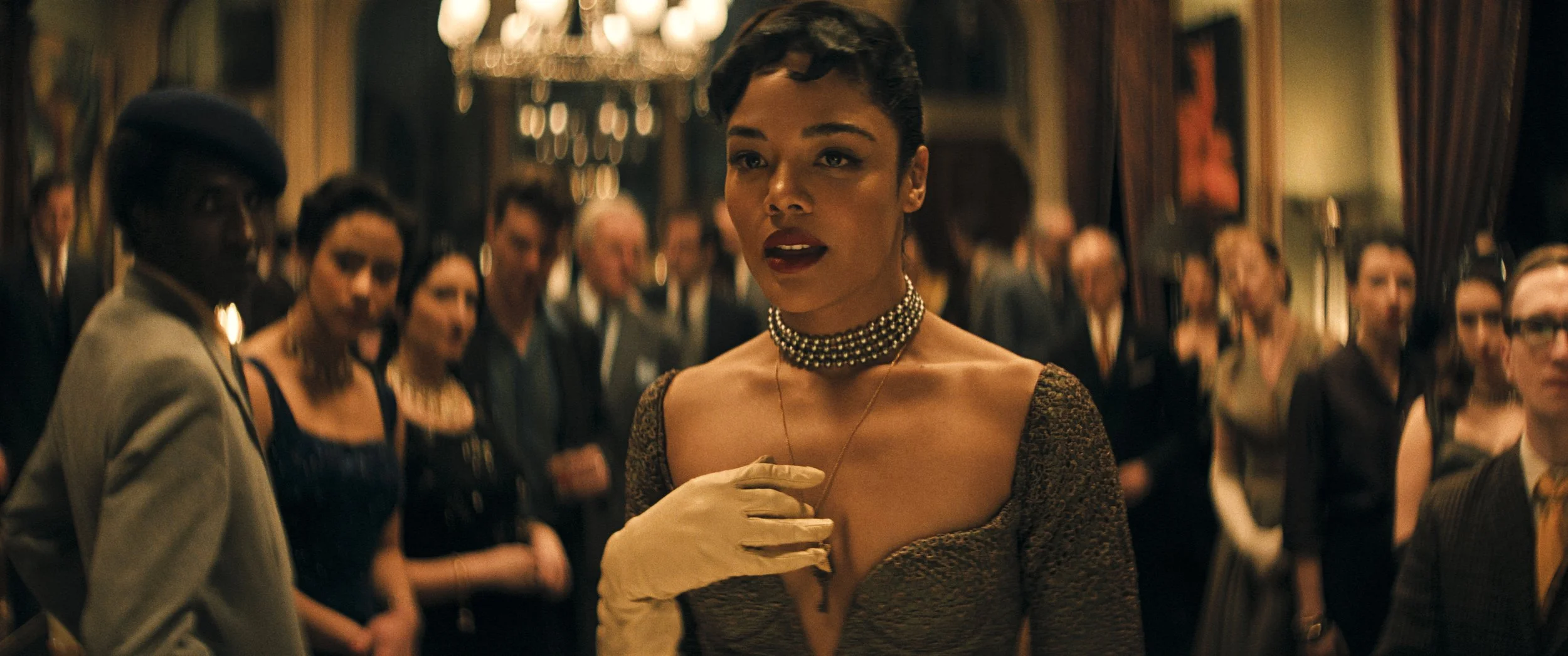TIFF25: “Hedda” Sees Tessa Thompson Reveling in Chaos
The role of Hedda Gabler is one of the most desirable stage roles for women. While that name may not ring a bell, the role of Hedda is akin to that of Blanche DuBois. Both are meaty roles of complicated women that allow an actor to flex their chops in a way few others offer. The role of Hedda Gabler comes from the play of the same name by Henrik Ibsen, the famed Norwegian playwright. In the 2025 Toronto International Film Festival world-premiering film from Nia DaCosta, Hedda, the role is played by Tessa Thompson and she makes the most of the opportunity.
Hedda is throwing a party to celebrate the purchase of a grand new house by her husband, George (Tom Bateman). He’s up for a promotion at the university where he teaches and the man responsible for this promotion will be in attendance. Hedda’s a bit wild, but Geroge begs her to just keep things fun, never out of control. This delicate balance is thrown into jeopardy with the arrival of Eileen Lovborg (Nina Hoss). Not only is she up for the same promotion as George, but it’s very obvious that there’s some sort of shared history between Eileen and Hedda. Eileen doesn’t come alone, either. Thea (Imogen Poots) arrives a little earlier than Eileen and begs Hedda to help her keep Eileen on the wagon. Like Hedda, she’s been known to drink a little too much. As the party goes on, Hedda acts like a circus performer, spinning all the plates and twisting them to get everything she wants.
In the original Ibsen work, Eileen is a man. DaCosta has swapped genders of this character to create a far richer text that explores sexuality, gender, and race in a way the original play did not. Eileen’s and Hedda’s sexualities are an open secret, and characters whisper about it in the shadows but don’t bring it up directly. There’s still a sense of decorum they’re trying to uphold. Behind closed doors, however, we see the true desires of each of these characters. Hedda explores the way Eileen’s gender and sexuality work against her in many facets of life, and sees her Whiteness as an asset that allows society to overlook the parts of her they find less favorable. It shows how, above all else, Whiteness prevails and affords certain freedoms.
courtesy of TIFF
With its roots in the theater world, Hedda is dialogue-dense. This is a wonderful gift when there’s a multitude of topics to explore. The film keeps returning to its titular character’s obsession with control over all else. She’s the “bastard daughter” of a famed general, and the need to be the one pulling the strings likely comes from being known by that title her entire life. She wasn’t given an opportunity to define herself, yet that’s what she so desperately desires. It’s what DaCosta explored in something as simple as the film’s name. The original play uses Hedda’s father’s name, while George spends much of the film reminding Hedda that she’s a Tesman. In actuality, Hedda wants neither. She wants to exist as an entity all her own. By naming the film this way, DaCosta has made Hedda her own person, not tied to her father or her husband.
Thompson’s turn as Hedda is deliciously manipulative. She’s pulling the strings of everyone who is enamored of her boisterous charm so well that they hardly realize she’s set them on a collision course with the worst parts of themselves. Despite the power she wields, Hedda is also moments away from letting the ever-welling tears burst from her eyes. Her happy-go-lucky exterior cannot contain the profound sadness she has for the life her gender, race, and social standing have doomed her for. She doesn’t want to be an at-home housewife, but what else is there for her? Led by Thompson’s truly magnetic performance, Hedda provides an inspired, updated, and freshly twisted take on the classic play.
support your local film critic!
~
support your local film critic! ~
Beyond the Cinerama Dome is run by one perpetually tired film critic
and her anxious emotional support chihuahua named Frankie.
Your kind donation means Frankie doesn’t need to get a job…yet.
Follow me on BlueSky, Instagram, Letterboxd, YouTube, & Facebook. Check out Movies with My Dad, a new podcast recorded on the car ride home from the movies.

